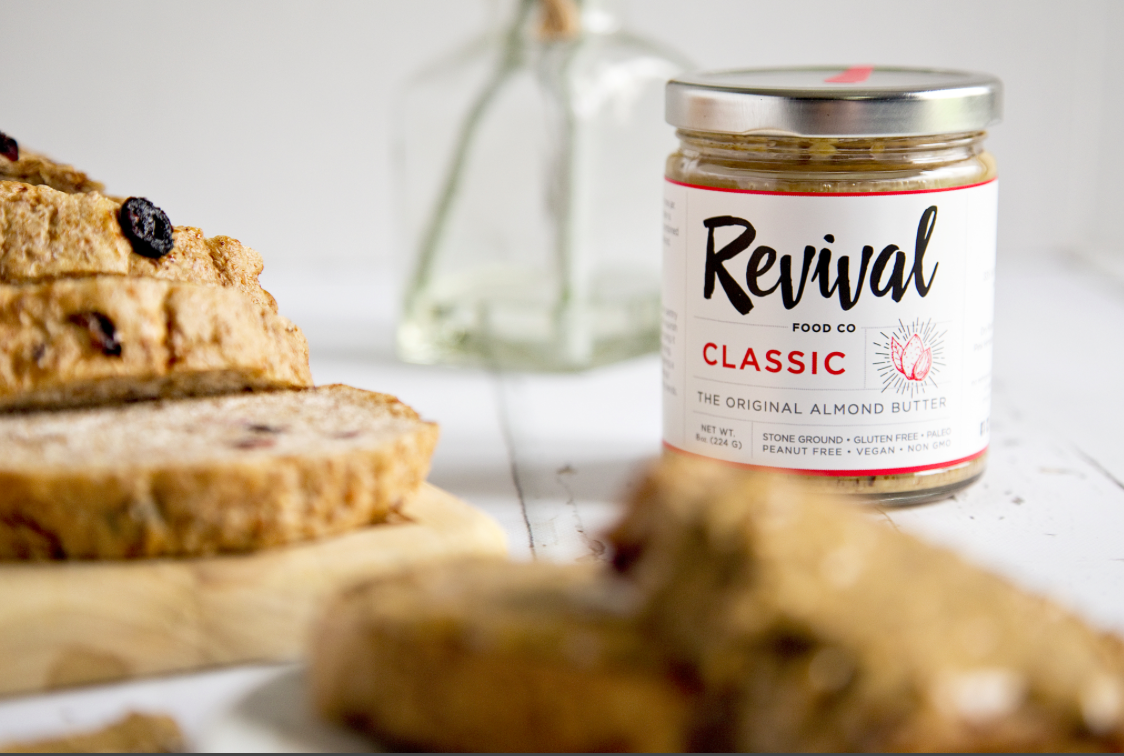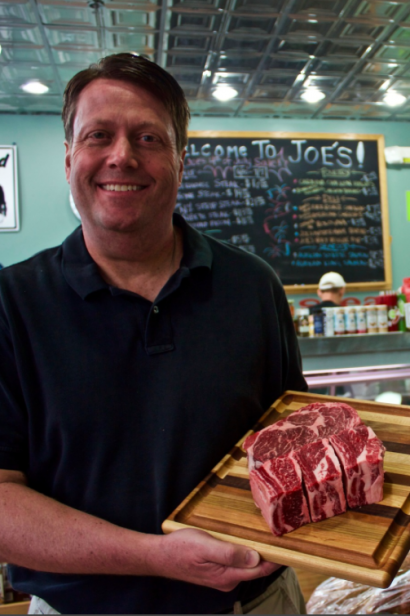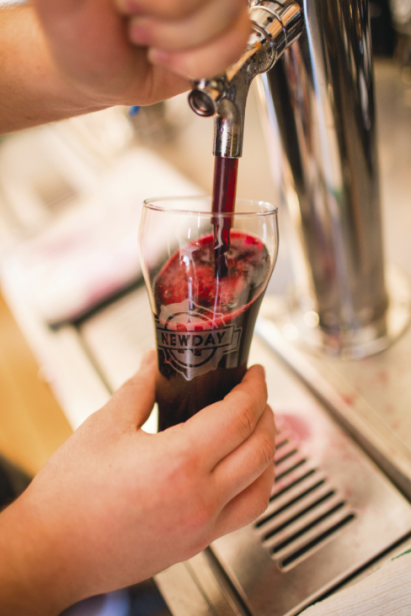Risky Business: Start-ups, setbacks and the lowdown on launching your own business
Starting a business is a risk, and the food industry is notoriously tough to survive in. Restaurants open and close all the time. Business owners have to contend with health and safety codes, the sometimes-unpredictable habits of customers and the stress of putting everything on the line for this one crazy idea. Even well-established businesses occasionally have to fold, but there is good news: According to studies done by both the University of Tennessee and the U.S. Bureau of Labor Statistics, start-ups have around a 50-50 chance of surviving. That means if you play your cards right and power through the inevitable setbacks, you can be one of the successes. But it’s important to realize that there will be setbacks.
“Every business has unexpected challenges that come up,” says Tia Agnew, the co-founder and CEO of New Day Craft in Fountain Square, a local business that makes craft mead and cider. She has been in the business for 10 years and has run into her fair share of frustrations and obstacles, and she knows just how difficult it can be to make sure you have all your i’s dotted and t’s crossed.
“The food-related industry has different regulations you have to contend with,” she explains. “Before starting my business 10 years ago, I came from a government-related background, so jumping into a regulated industry was a little bit easier for me, because I wasn’t scared of the mountains of paperwork I’d be filing, deadlines and all that stuff food-based businesses have to contend with. But in general, it can be a really scary part of being in a food-based business, because most of us don’t have that background. It’s a little daunting.”
Rachel Klein, founder and owner of Revival Food Co., knows exactly what Agnew is talking about. Klein sort of stumbled into the food industry. After making her signature almond butter for her wedding favors in May 2014, she received an onslaught of requests from friends and family interested in buying it. At the time, she was working a smattering of retail jobs, and had no prior experience with the food business or heavily regulated industries. She decided to give selling food full-time a shot and started her almond butter business in December 2014. Her lack of experience in the industry made for a bit of a rough start.
“I felt like I was experiencing one setback after another simply because I had no idea what I was doing. Every day was like, ‘Oh! I’m supposed to be working in a certified kitchen? I need a trademark? Nutrition? I don’t know what’s supposed to be on my label and not on my label,” she says.
The beginning was rough, but she pushed through and got help from more seasoned professionals.
“I had a lot of support. I was meeting with a lot of local food business owners to get advice from them. That’s really the greatest thing you can do—to just ask questions,” she says.
Joe Lazzara, who started Joe’s Butcher Shop in Carmel, has been in the industry for 10 years, and he too is familiar with the fear of failure. During his first year of business, they had issues with construction near their shop and different regulations that kept customers from coming in.
“While we had projected a loss that first year, that loss was more than tripled,” he says about his first grueling year of self-employment.
After experiencing a setback like that, most people would be tempted to give up, but Lazzara put his head down and figured out how to make it work, and the butcher shop is still going strong today.
“I think you do panic in some ways. It’s natural for everybody to panic,” says Lazzara. “But it’s a question of how you handle that emotion. Do you put it towards rolling over and dying? Or do you channel that emotion into ‘I won’t fail?’”
But even after getting comfortable with the regulations and settling into a groove, issues still come up that business owners have to deal with. Sometimes setbacks come even after you’ve become a well-established business. Joe’s recently started offering delivery, and he says it hasn’t been utilized nearly as much as they hoped and it’s been frustrating trying to figure out how to get people to take advantage of it. They spent time and money to offer delivery, and he says they are going to keep working out the kinks until it pays off.
“Like a lot of things, it’s not so much your desire to succeed as it is your fear to fail,” says Lazzara.
Klein also hit a major roadblock with her company Revival after finally beginning to get comfortable in the industry. After landing a handful of deals with stores and distributors, Klein discovered her original name, Pure & Good Foods, couldn’t be used due to trademark issues. She had to rename her company, completely rebrand her products and retain her small base of loyal customers with less than a year’s worth of business under her belt.
“I was floored. I felt like the world had been taken out from under me,” says Klein.
There was no easy solution. Klein says she simply spent a lot of time writing things down, thinking about what she wanted her business to be and trying to focus on the positive. Now, she loves the new name and look and thinks they perfectly capture her company and goals. Starting Revival Food Co. was hard work, but she wouldn’t trade her business for the world because she loves sharing her passion for healthy food and eating well with other people.
“It frustrated me when people would tell me to run the other way because it’s hard. My advice would be: Expect that it’s going to be really hard. Expect that there’s going to be so many things that you know nothing about—that you have to learn from people who know more than you. And also just do it. You have to make some really bold decisions and just make it happen,” says Klein.
Agnew adds that along with the “get it done” attitude, you also have to be willing to slog through the boring parts.
“It’s all about the details. A lot of people looking into the food business have a lot of passion—and you’ve got to have that to keep you going, for sure—but you definitely have to dig your heels in, get your reading glasses out and make sure you’re following the regulations and the rules. It’s really boring, but it’s really necessary in the food business,” she says.
The challenges the work poses and the new things you learn are part of what keep these business owners coming back for more even when the going gets tough. Customers with cultures and backgrounds from around the world come into Joe’s Butcher Shop and ask for different cuts and recipes, and as food trends change, customer demands change too.
“Those type of things are never-ending in this business, and after 10 years we learn something new every single day,” says Lazzara. “I love it. I really do.”
And Agnew says, “I joke that all entrepreneurs must be optimists in order to be in business. Being your own boss is not the easy way; it’s not the easy path. You’ve got to really love it; you’ve got to really want it. And that’s kind of where you gain your strengths: when unexpected things happen or you hit a setback. You fall back on the fact that you get to live your passion every day. That’s the key.”
Revival Food Co. | RevivalFoodCo.com
New Day Craft | 1102 Prospect St., Indianapolis | NewDayCraft.com | 888.632.3379
Joe’s Butcher Shop | 111 W. Main St., Carmel | JoesButcherShop.com | 317.846.8877







